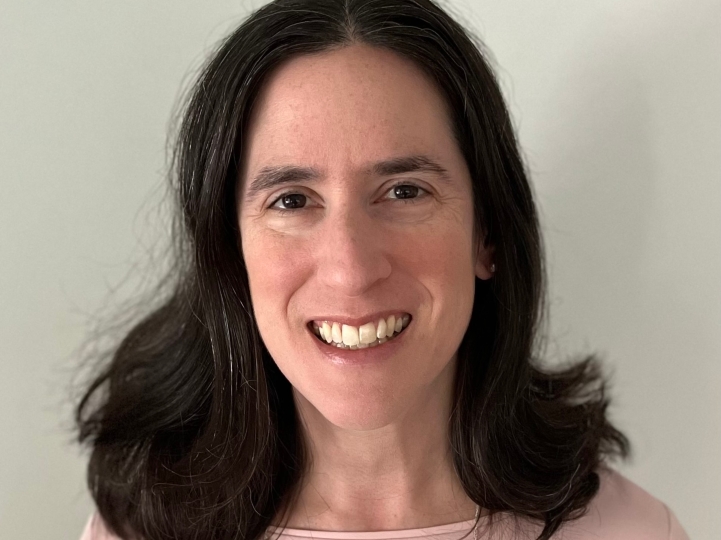
Conference Round Up
Equity, Inclusion and Social Justice Equity, Inclusion, and Social Justice Division Spirituality and Religion in Higher Education Faculty
May 15, 2023
Critical Religious Studies in Higher Education: An Ongoing Column in JCC Connexions
This spring, I had the opportunity to attend the annual conference of ACPA: College Student Educators International in New Orleans. Since becoming a member of ACPA in 2000, I have attended the conference most years. The number of sessions related to college students’ and practitioners’ religious, secular, and spiritual identities (RSSIs); white Christian supremacy in higher education; and employment at religiously-affiliated institutions has ebbed and flowed over the years. This year, I attended two sessions on exciting, related topics, which inspired me to gather information on presentations at other conferences that connect to the theme of this column, critical religious studies.
I asked my colleagues Renee Bowling, Julia Collett, and Sachi Edwards to help me compile of list of presentations related to critical religious studies at the conferences we collectively attended this year: ACPA, American Educational Research Association (AERA), Association for the Study of Higher Education (ASHE), Association of International Education Administrators (AIEA), Comparative & International Education Society (CIES), and NASPA: Student Affairs Administrators in Higher Education.
Here are some topics currently being discussed in higher education:
- Considerations within research methodology, such as centering those with marginalized identities (both the researchers and the research participants); including RSSIs within intersectionality models; and incorporating understandings of religious power, privilege, and hegemony
- Up-to-date best practices around academic calendars, accommodations policies, using data to address religious bias incidents, and training
- The terminology around Islamophobia and anti-Muslim prejudice, and the relationships between Muslim identity, culture, and race
- Antisemitism, the Israel/Palestine conflict, and BDS, and their impact on Jewish students; the ways Jewish students are often forced to answer for the actions of the Israeli government, simply because they are Jewish
- The complex relationship between Christian hegemony and whiteness, and how this plays out in various ways, such as within programs on intercultural competence, pre-college religious socialization, and in the broader culture, such as with book bans
- Various other topics, such as the impact of religious trauma on campus life; the experiences of students on campuses or in regions that are religiously homogenous; how to honor Indigenous worldviews and knowledges through work in the curriculum, partnerships, and exchanges; how Christian researchers and practitioners can push back against Christian nationalism; global perspectives on RSSI and worldview diversity; the legal parameters of religious expression on campus; and how religiously minoritized students may experience erasure and outright prejudice during an interfaith dialogue
It is heartening to see such a long list of sessions that related to critical religious studies. Some of the topics, of course, are more closely aligned: those that directly address issues of power and oppression along lines of RSSIs, those that critique white Christian hegemony, with those that interrogate the connection between RSSIs and other forms of identities, and those that center marginalized voices.
All discussions related to RSSIs, however, do not automatically qualify as critical. Scholars are not always practiced at examining their research for power differentials, and practitioners do not always realize when their policies have a negative impact on those with minoritized identities. Audience members in these sessions may not notice when presenters speak from a place of Christian privilege or when their own questions and comments betray blind spots in this area. In fact, when religious differences are discussed without recognition that some identities confer privilege while others do not, harm may be perpetuated—both in the conference space and afterward, when audience members take flawed or biased learning back to their campuses.
Along those lines, here are some of the gaps or outright problems we noticed at these conferences that might be of interest to those searching for an available research topic or advocacy area:
- How students with minoritized RSSIs can be helped to feel a sense of belonging in college, especially in the current anti-DEI climate. With critical theories and diversity frameworks becoming politically dangerous to utilize, belongingness may become the best structure to use for ensuring students’ inclusion on campus.
- A lack of understanding of the social justice issues that pertain to RSSIs. This was clear in the multiple sessions that bridged DEI and internationalization/global learning without making any mention of RSSIs. And when one of us registered for a justice- and equity-focused conference not named above, she was asked for her “religious preference” (and her identity was not even included on the list of options)—an outmoded way of framing RSSIs that overlooks the cultural, ethnic, racial, and familial components of those identities.
- The appropriation of other cultures’ traditions, such as when mindfulness practices or pedagogies are presented as innovative, without any acknowledgement that they are deeply rooted in Buddhist tradition
- A narrow focus on what constitutes legal religious coercion on campus, without considerations of religiously marginalized students’ negative experiences with evangelization
- How to bring new practitioners and graduate students into these conversations, so that the field as a whole becomes more knowledgeable
There is much work to be done, and we need a movement of people to do it. I don’t have the space in this column to detail each talk or identify every presenter; however, if you attended or presented this material and are interested in joining in a broader conversation about critical religious studies, please email me.